Keynote Speakers
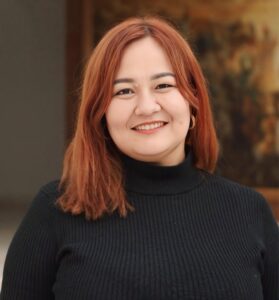
Professor Tamara Zhukabayeva
L.N. Gumilyov Eurasian National University, Kazakhstan
Tamara is a Professor of Computer Science at the Faculty of Information Technology, L.N. Gumilyov Eurasian National University, Kazakhstan. With over 18 years of academic and research experience, her work spans cybersecurity, the Internet of Things (IoT), artificial intelligence, and smart systems. She has led and contributed to numerous nationally funded research projects, with a strong focus on network-level threat detection, cyber-physical system security, and intelligent infrastructure for smart cities.
Prof. Tamara Zhukabayeva has held international research fellowships at institutions including the University of Lincoln (UK) and University Putra Malaysia, supported by the prestigious Bolashak International Scholarship.
She is a recipient of several distinguished honors, including the Best University Teacher Award and the State Scientific Scholarship for Talented Young Scientists, and was recognized as an Emerging Leader by the Republic of Kazakhstan.
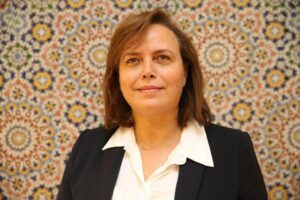
Professor Aawatif Hayar
Hassan II University, Morocco
Prof. Aawatif Hayar holds a Ph.D. in Signal Processing and Telecommunications from the National Polytechnic Institute of Toulouse. She was the first Moroccan woman to obtain the agrégation in Electrical Engineering from ENS Cachan in 1992. In 2019, she became a university president, making her the second woman in Morocco’s history to hold such a position. A senior member of IEEE, she is also co-founder of E-Madina and president of the Casablanca IEEE Core Smart City project. She is widely recognized for her commitment to the development of smart cities.
She has led numerous R&D projects in collaboration with institutions such as IRESEN, CNRST, Lydec, GIZ, and the HBS Foundation, and coordinated the Solar Decathlon Africa – E-co Dat project. From 2021 to 2024, she served as Minister of Solidarity, Social Integration, and Family in the Akhannouch government.
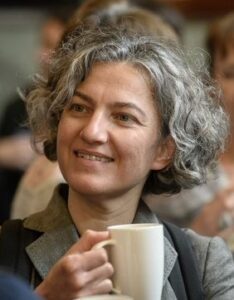
Dr. Mona Jaber
Queen Mary University of London, UK
Mona Jaber (Senior Member, IEEE) is currently a Senior Lecturer on the Internet of Things (IoT) with the School of Electronic Engineering and Computer Science, Queen Mary University of London. Her research interests include zero-touch networks, the intersection of machine learning and IoT in the context of sustainable development goals, and IoT- driven digital twins. She secured the prestigious EPSRC New Investigator Award for a project entitled: Distributed Acoustic Sensor system for Modelling Active Travel in which she investigates machine learning methods for processing optical fibre signals that represent active travel. She is the founder and director of the Digital Twins for Sustainable Development Goals (DT4SDG) research laboratory at QMUL. Mona is the head of the Centre for Networks, Communications and Systems at QMUL, the secretary of the IEEE UK and Ireland Section and of the IEEE UK and Ireland Intelligent Transportation Systems Society chapter.
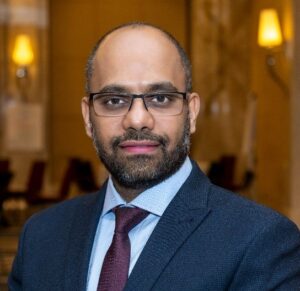
Prof. Shadi Basurra
Birmingham City University, UK
Prof. Dr. Shadi Basurra, Professor of Intelligent Systems, graduated from the University of Exeter – BSc, UK (2007) and the University of Kent – MSc, UK (2008). He earned his PhD from the University of Bath (in collaboration with Bristol University) in 2012 through a scholarship from Toshiba, Great Western Research, and the Yemeni government. He worked as a Researcher at Sony Corporation in Japan and has been an academic at Birmingham City University since 2014. He has published numerous scientific papers in international conferences.
As Head of the Department of Computer and Data Science, he co-founded the Data Analytics and AI (DAAI) research group, leading six labs on projects in health, sustainability, natural language processing, and computer vision. DAAI has gained national and international recognition under his leadership, overseeing a team of 55 and mentoring emerging researchers.
He has contributed to high profile projects worth £8.25M, serving as PI or Co-PI for six of these (£3.25M) and playing key roles in others (£5M). From 2014 to 2024, he has led collaborative funding applications and managed funded projects nationally and internationally, remaining actively involved in all research aspects.
Prof. Basurra has established UKRI and international consortia with business and academic partners to offer CPD courses for industry professionals. Leading the Software Engineering Track at BCU’s Software House, he has engaged with over 142 businesses, benefiting more than 100 through CPD courses and business assists, and delivering impactful solutions for 42 businesses. He has led enterprise initiatives resulting in several Intelligent Products (MVP) including i-Magine Sensor, iRet, SmartSketcher, and Mental Health Dashboard. Notably, he is leading the commercialisation of SmartSketcher, targeting 5% of the homeowner market with a high yield revenue model.
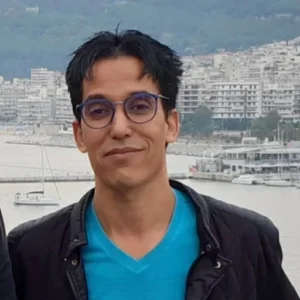
Professor Mohamed Youssfi
ENSET Mohammedia, Hassan II University, Morocco
Mohamed Youssfi is a research professor at ENSET Mohammedia, Hassan II University of Casablanca, and the director of the research laboratory “Computer Science, Artificial Intelligence, and Cybersecurity.” His scientific work centers on computational intelligence, parallel and distributed systems, multi-agent systems, high-performance computing, big data, distributed artificial intelligence, and generative AI. He has authored over 138 research articles published in indexed journals, peer-reviewed conferences, edited volumes, and books. He also holds several professional certifications, including MIT-IDSS: Data Science and Machine Learning: Making Data-Driven Decisions, Generative AI with Azure OpenAI, Generative AI for Natural Language Processing, and the Advanced Tableau Data Analyst Certification Training Program, among others. In addition to his academic contributions, he actively shares educational content through his YouTube channel, which features over 890 videos on topics such as software engineering, distributed systems, multi-agent systems, and artificial intelligence. The channel has garnered more than 110,000 subscribers and can be accessed at: https://www.youtube.com/@mohamedYoussfi/videos.
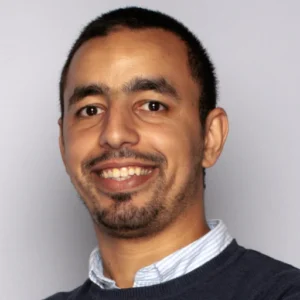
Prof. Ayoub Karine
Université Paris Cité, France
Ayoub Karine received the M.Sc. degree from Mohammed V University, Rabat, Morocco, in 2014, and the joint Ph.D. degree from Mohammed V University and ENSTA Bretagne, France, in 2018. From 2017 to 2019, he was a temporary Assistant and Researcher with the Université de Haute Alsace, France. He was an Associate Professor with ISEN Yncréa Ouest, Nantes, France from 2019 to 2024. He is currently an Associate Professor at Université Paris Cité. His publications are about machine/deep learning and computer vision. He served as a TPC member and a reviewer for many leading international conferences and journals.
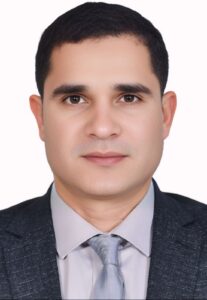
Prof. Rachid Saadane
Hassania School of Public Works (EHTP), Morocco
Rachid Saadane is a full professor at the Hassania School of Public Works (EHTP) in Morocco and Deputy Director in charge of research, cooperation, and partnerships. He holds a Ph.D. from Mohamed V University in collaboration with the Eurecom Institute in France. From 2003 to 2006, he worked at Eurecom as a research engineer on RF channel modeling. He leads the LaGeS research laboratory at EHTP since 2018. His research spans wireless communications, AI, big data, IoT, signal and image processing, and smart cities. He contributes to 6G networks, cybersecurity for smart grids, and AI for empowering and assisting people with impairments. He has also worked on smart agriculture, green hydrogen, and sustainable technologies. He is a certified 5G ICT instructor and has over 150 publications. He completed more than 500 peer reviews (IEEE, Elsevier, Springer). He received the Best Paper Award at the Smart Cities Applications Conference in 2019.
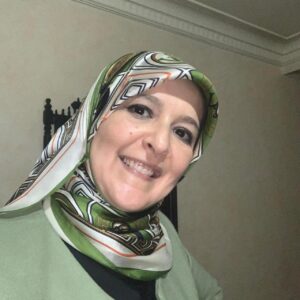
Prof. Laila Fetjah
Hassan II University, Morocco
Professor Laila is accredited to supervise doctoral research in cybersecurity at Hassan II University of Casablanca. She holds a Ph.D. in Computer Science (2008) and a Master’s degree in Computer Science Research from the University of Quebec in Montreal (2001).
Her areas of expertise include information systems security, computer networks, and blockchain technologies. She currently serves in several academic and administrative roles:
• Coordinator of the Master’s program in Cybersecurity & Cyberdefense,
• Head of the Networks, Security, and Data Processing research team at the Faculty of Sciences (FSAC),
• Supervisor of numerous master’s theses and Ph.D. dissertations in cybersecurity.
She also holds multiple professional certifications, including:
• IBM Certified Artificial Intelligence Analyst,
• Cisco Cybersecurity Certification,
• IoT Security (University of Malaysia),
• ISO 27001 Lead Implementer,
• PECB Certified Trainer.
In addition to her academic career, she has served as Technical Director for IT companies in both Morocco and Canada, and has been a cybersecurity consultant since 2010.
Her research work focuses on cloud security, payment data protection, cloud-based intrusion detection systems, blockchain and IoT for healthcare, and Big Data architectures for anomaly detection. She is the author of numerous scientific publications indexed in international journals (Scopus, Web of Science) and IEEE conferences.